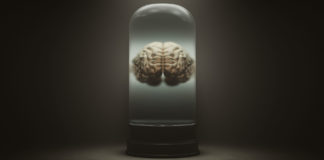Equivocation: Playing hide-and-seek in communication
When what someone says can be interpreted in multiple ways, we are in danger of coming to an understanding which is different to their intended message.
Is sugar the most dangerous drug?
While few people can remember the details of their first hit, everyone can identify with the rush of satisfaction, the tingling delight that starts on the tip of your tongue and then courses through your entire body.
The forgotten sign
On May 19th, 1780, a strange phenomenon turned a sunny morning into an unexpected night. The event, known as the Dark Day, was seen as a sign of divine judgment by contemporaries and as a means of ridiculing apocalyptic expectations by sceptics.
The illusion of connection
I sat slouched on the edge of my bed, blue light illuminating my face in the dark. It was the tenth time I’d checked my phone in the space of five minutes. I grimaced. Was something wrong with me?
What is the value of patience in a world of passions?
Global warming, plastic pollution, antibiotic-resistant superbugs, extreme weather events, artificial intelligence, global resource depletion, social inequality, the proliferation of social media abuse and manipulation through fake news, the resurgence of political extremes with racist and nationalist overtones—these are some of the "signs of the times" that are analysed in the media as elements that could each cause radical changes in society. But why...
Let’s read Genesis with “new eyes”
In the spring of 2022, I interviewed the venerable professor of Hebrew exegesis, Jacques Doukhan, for the second time. Ten years before, in our first interview, we discussed his life: his beginnings in a Jewish family in Constantine, Algeria, his studies in France, Switzerland and the United States, his work as a teacher and author. This time we talked about the study that...
The soul and its meaning according to the Bible
“Soul” is a very special term. Due to lack of space, I shall not approach it here philosophically or scientifically, but exclusively in the context of biblical theology, narrowing it even further, to a linguistic point of view.
Happiness is built
I remember a question I was asked a long time ago that puzzled me more than other really difficult ones. I had to describe a happy day and, rummaging through my bag of happy, interesting or downright glorious days, it wasn't very clear to me what criteria I should use to choose one.
Sugar and venom: pitfalls of the freedom to buy and sell sex
More than 19 years ago, the Netherlands experimented with legalising prostitution, an approach that many countries looked at with interest and curiosity. After all, after the failure of the "noble experiment" of American prohibition, people wanted to see the result of the opposite approach with regards to sex.
An investigation into the credibility of the Apocalypse
"Between 1800 and 1820 more than 20,000 people emigrated from Württemberg to Russia...hastening to meet the coming Lord and to find on Ararat in the Caucasus the place of refuge at the end of the world. Johann Albrecht Bengel had calculated that Christ would come again and that the Thousand Years' empire would dawn on Sunday, 18 June 1836. The 'brotherly emigration harmonies'...
The fascinating gospel of John
Dr Kendra Haloviak-Valentine, Professor of New Testament at La Sierra University in Redlands, California, comes from a family with a tradition of theology and research.
Actors in a divine plan
At the appointed time in the plan of salvation, Christ was sent to us: "When the set time had fully come, God sent His Son, born of a woman, born under the law..." (Galatians 4:4).
The Protestant Reformation: The river that runs through the whole earth
The Protestant Reformation was a tumultuous river, the flow of which began to become visible in 1517. A significant contribution to this eruption was made by its tributaries, the (pre-) Reformation movements: the Waldenses, Albigensians, Lollards, Hussites, etc.—true springs of the main Protestant current, which took over their force in its flow through history.
Great expectations in friendship
How can we protect ourselves against expecting too much of our friendships? Can we do something to prepare for the disappointment? And what does one do to deal with it?
More than a brain in a jar
Michael Paterniti is the man who crossed America in 1997, carrying a jar containing Albert Einstein's brain in the trunk of a rented Buick. This journalist is not the only man who can brag about this memory, because riding shotgun was Thomas Harvey, the pathologist who had stolen the brain of the great physicist, in the hope that he would be able to...


























